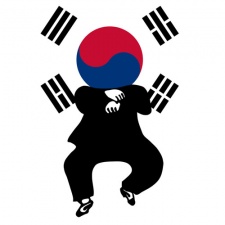Given the importance of the Asian region to the global mobile games industry, PocketGamer.biz is always looking to bring its readers better analysis from the region.
That's one of the reasons we have a dedicated section for Asian news.
With that in mind, we've partnered with Korean games agency Latis Global Communications to provide a regular opinion piece - we're calling it 'The News Gangnam Style' - about developments in the highly successful Korean mobile game industry.
With over 700 games on display and thousands in attendance, the booth girls weren't the only ones shining the eyes of eager Korean developers at ChinaJoy 2014.
Hopes were high for small and mid-size Korean studios that the conference would open doors to more opportunities than the domestic market.
With over 2,000 studios operating in Korea competing for the top spots in just a few stores, stiff competition has forced smaller developers to start seeking opportunities abroad. While some have set their sights on western audiences, others have looked a little closer to home.
But there is a growing sense of concern in Korea that China is becoming more foe than friend in the tech industry.
For smartphones, Xiaomi's stunningly high-quality phones threaten Samsung's position as the high-end Android leader.
Kakao and LINE - the darlings of Korea's industry - are reportedly being blocked in China, in what appears to be a brazen attempt by China to redirect its smartphone users to the indigenous QQ and WeChat platforms.

After the display by Chinese developers at this year's ChinaJoy, some Korean developers are concerned mobile gaming will see a similar trend, and the Chinese market will change from one of open opportunity to one rife with the same competition they are facing at home.
As Chinese game companies continue to raise the bar on quality, the nature of the relationship between China's and Korea's game industries bears examining.
Friends with benefits
For the last few years, the two Asian giants have made good bedfellows, and for good reason.
There is a growing sense of concern in Korea that China is more becoming more foe than friend.
More so than the west, China and Korea share a number of market similarities. Both markets have a high preference for quality RPG games, share similar artistic preferences, and even technology, with Samsung owning the largest share of China's fragmented hardware market.
Thanks to these similarities, the last few years have seen a number of cross-border investments and mergers that have helped drive growth in Asia's mobile game market.
In the past year alone we have seen Chinese game titan, Tencent, buy a $500 million, 28% stake in the chart-topping CJ Games Corp, valuing the company at a whopping $1.8 billion.
In April, the Chinese global e-commerce business, Alibaba, set up a South Korean branch to negotiate investments with local gaming companies, some of which have reportedly signed deals.
ChinaJoy saw a continuation of this activity. Chinese publisher Chukong signed service agreements with Nexon for its Legion of Heroes and with Com2uS for Dragon Knights.

Gamevil's Become a Star was signed to an exclusive service contract with Tencent, and Devsisters' Cookie Run was on display at the iDreamsky booth, exemplifying the strong relationship the Korean and Chinese game industries.
Who is really winning?
At first glance it would be easy to tout the friendly nature between China and Korea's game industry as opening up opportunities for developers, but others are looking on with skepticism.
To start, though Korea has managed to become a world leader in Google Play revenue, its market is relatively small. With an ever growing number of talented developers competing for the top spots in just a few stores, competition is rising, and finding success is more difficult.
The emerging presence of King and Supercell, international studios with superstar appeal, only exacerbates the notion that the Korean market is now a "red ocean".
Investments and mergers between China and Korea have mostly benefited .... the top of the food chain.
With similarities in consumer tastes, and what was traditionally a demonstrable difference in game quality, Korean developers had long looked to China hopeful for what opportunities it might bring. But, so far, it hasn't panned out.
Investments and mergers between China and Korea have mostly benefited the very few that are already at the top of the food chain. CJ Games Corp, for instance, has five games in the Korean top 20 grossing chart, three of which are in the top 10.
In fact, none of the major announcements coming out of ChinaJoy involved companies that didn't already have a top 10 game in Korea.
The result has been a prevailing feeling of anxiety and concern among small and mid-size Korean developers.
One thing is for sure, with the success of foreign developers in Korea, and the sense that competition will only get tougher in China, Korean developers would be smart to hedge their bets on success by diversifying their audiences.
Curtis File is the PR Coordinator for Latis Global Communications, a game agency in South Korea helping international game companies break into Korea, and domestic developers find success abroad.
Latis has worked on the localization strategy of games like Archeage, Maple Story, and the mobile hit Hello Hero.



















